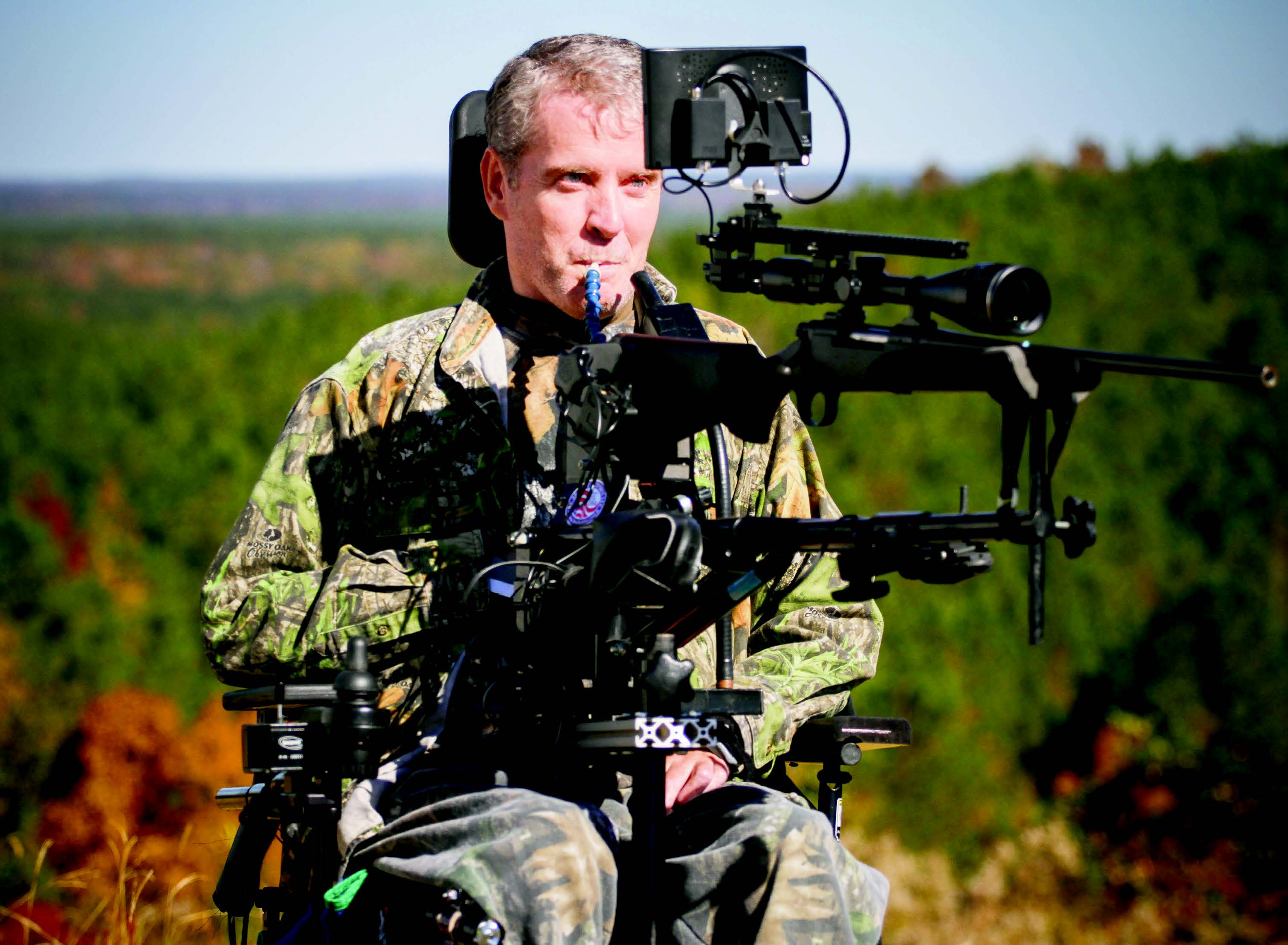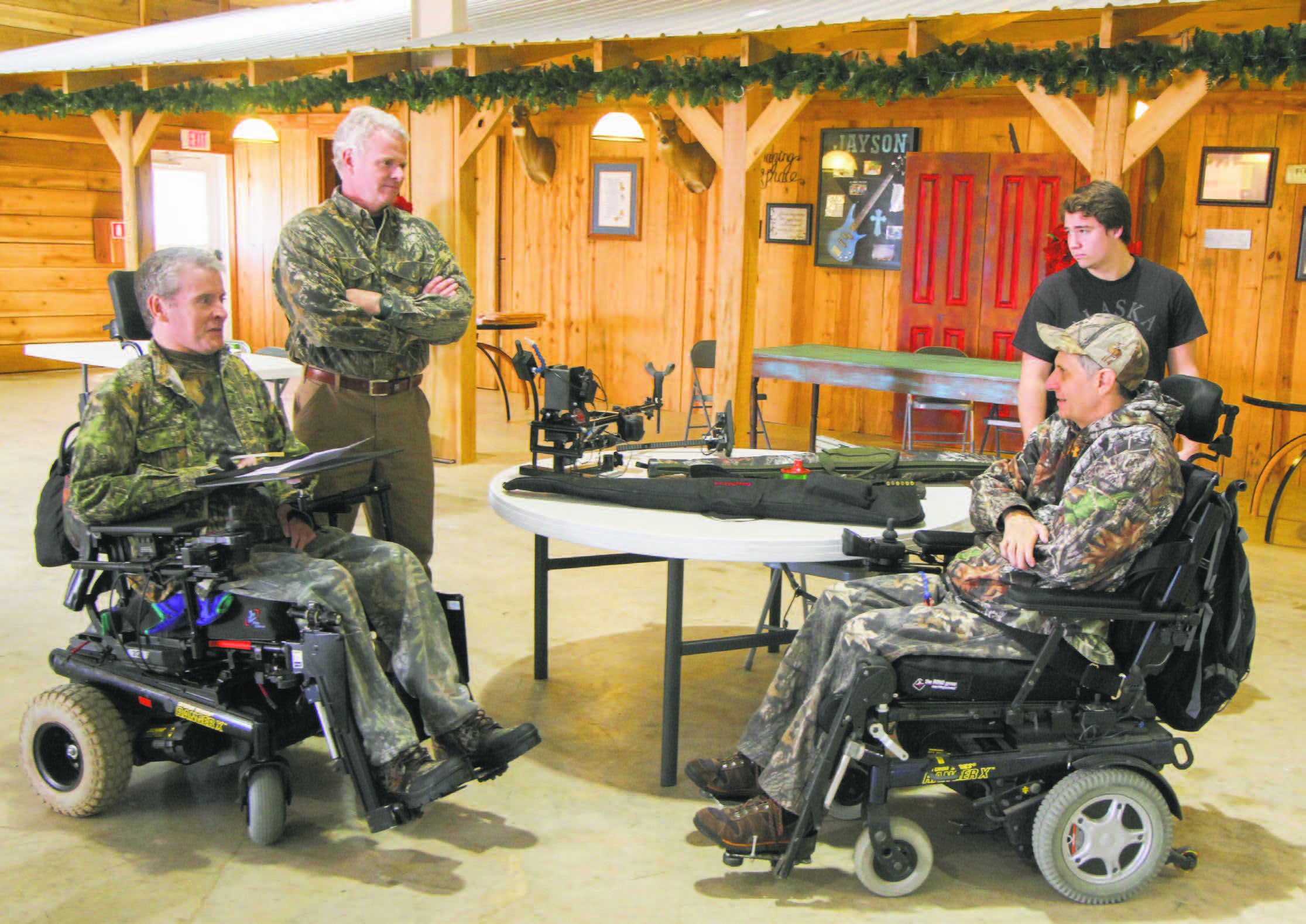Staying on Target
Staying on Target: Agency Helps People with Disabilities Regain Independence
November 27, 2016
The Meridian Star
By Whitney Downard

Across Mississippi, a little-known state agency improves the lives of thousands of people with disabilities, modifying homes or vehicles and giving assistive technology to those in need.
“A lot of folks just don’t know about us,” said Chris Howard, the executive director of the Mississippi Department of Rehabilitation Services. “We’re trying to get the word out so individuals with disabilities know where to come.”
MDRS aims to provide resources for Mississippians with disabilities to find new careers, live more independently, overcome obstacles and face new challenges, according to the agency.
“If someone is too disabled to work, then they just need to live more independently,” said Howard, the executive director for the last year and a half. “Everybody’s different.”
A little more than 30 years ago, as an 11th grader, Evan Edwards broke his neck during a tackle in a football game. A C4-5 quadriplegic, Edwards cannot move his lower body, wrists or hands.
He eats by moving special utensils tucked into his wrist brace with his shoulder and elbow. His Mississippi State University cup – his alma mater – hooks onto his arm so he can drink from the extra-long straw. A pointer on the end of his brace acts like a finger, pushing the buttons that unlock his van and activate his voice-command controls.
Despite his disability, Edwards still does the things he loves. He paints landscapes holding a paintbrush in his mouth and hunts, preferring to spend as much time outdoors as possible.
“(Before my injury) I was never one to stay inside,” said Edwards, who spends most of his time in a motorized wheelchair. “I was always riding bikes, in the woods – could be hunting – but just always doing stuff outside.”
Thanks to technology from Be Adaptive, Edwards can hunt with a motorized gun mount. Using a joystick guided by his chin or mouth he aims and a solenoid pushes on the gun, activating the trigger by sipping on a tube.
“I went from (always being outside) to not being able to get into the woods after my injuries. It meant a lot for me to get back into the woods and get back to doing that,” Edwards said.
In the 10 years Edwards has been hunting with the motorized gun mount, he said, he has shot 22 times and killed 17 deer.

At Cross Mountain Ministries in Kemper County, Edwards meets with a group of hunters with disabilities. On Nov. 19, the group met for an all-day hunting trip, complete with two meals and opportunities to socialize. Whenever Edwards meets another person with a disability, he invites them to join the group and get back outdoors.
“I enjoy being outdoors,” Edwards said. “Being able to do something that some able-bodied people can’t do... Some hunt for years before they kill their first one. But also I enjoy helping others to be able to get back out, whether they’ve done it before or they’re doing it for the first time.”
The Edwards family sought MDRS out after the mother, Margie Edwards, started having difficulty with her rheumatoid arthritis.
“My parents are getting older and can’t quite do what they used to do,” Edwards said. “(MDRS) has helped me be more independent in my home... Even just being able to get inside and outside my house by myself.
MDRS assigned Abbey Rush as Edwards’ counselor and provided Edwards with two personal care assistants on alternate schedules, giving his primary care giver, his mother, a well-deserved break and assisting Edwards in his day-to-day activities.
“Because (my parents) can’t do what they used to do,” Edwards said. “Now we have someone from outside the home come and take care of (things).”
MDRS counselors try to coordinate all of the needs of their clients – people such as Edwards – to help them live more independently.
For some clients this means helping them obtain employment, working with an MDRS branch that specializes in modifying jobs for individuals with disabilities and encouraging potential employers to hire them.
Other clients need home or vehicle modifications, which can cost up to $30,000, according to Howard. Home modifications can include lowering counters, providing ramps or adding bars in showers. Rush helped modify Edwards’ van so he could drive it independently.
“That was a long process,” Edwards said. “I wanted (my driver’s license) as a goal and I wouldn’t have done it without their help.”
The van, modified in Starkville by MSU’s T.K. Martin Center for Technology and Disability, takes voice commands and has two different joysticks that allow Edwards to drive, steering with his right hand and accelerating with his left. The modifications mean Edwards never has to touch the steering wheel or pedals.
“Transportation is a huge deal for someone with disabilities,” Howard said. “Being able to make it to their doctor appointments and be more independent... it’s a huge deal.”
MDRS also provides clients with assistive technology such as adapted-eating utensils, splints, lifts and voice-activated environmental control units. Edwards’ specialized utensils came from MDRS, as did his voice-activated environmental control unit.
Ultimately, for the MDRS, the goal is independence and keeping people with disabilities at home.
“(With MDRS) you’re doing as much for yourself as you can,” Rush said. “We don’t want anyone in any sort of facility... When you’re happy, comfortable and with your family you thrive more than in a nursing home.”
As a counselor, Rush has at least 50 clients in Lauderdale County and Clarke County, seeing each client at least once every three months. When she can’t visit, Rush calls or emails to check-up, searching for new tools to help make life easier.
“Every time I call (my clients) I ask if there’s anything they need or any questions... sometimes they’re afraid to ask or don’t know the words for what they need,” Rush said. “But if you’ve thought about it, it probably exists... (Edwards is) tech-savvy, but not everyone’s looking for resources like him. So they’re paying out-of-pocket and going without a lot of things.”
According to Howard, 16,000 Mississippians qualified for vocational services in the last year and 4,000 for other disability programs with MDRS, representing only a fraction of individuals assisted by the agency. MDRS provides the modifications and assistive technology free of cost to their clients, regardless of income.
“There are so many caring individuals that work in our agency. They’re changing someone’s life,” Howard said. “The state’s working to change the lives of individuals with disabilities.